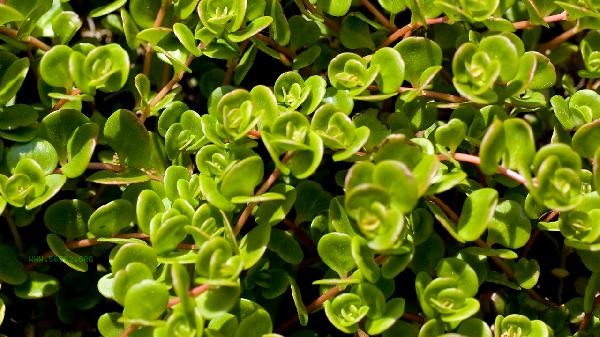In spring, the climate is unpredictable. At this time, adjust your daily life and diet. In terms of diet, make more adjustments to suit the symptoms and improve your body's resistance. Dietary adjustment should pay attention to two key points: staged adjustment and targeted adjustment. Let's take a look together below.
Staged Adjustment
China has a vast territory with a large temperature difference between the north and south. In March, it is already the Spring Festival Gala in the south, and heavy snow is falling in the cold and high-altitude areas of the north. Therefore, dietary adjustments should also be based on regional differences.
In early spring, the temperature is still cold and the human body consumes a lot of calories, so warm food should be eaten. The dietary principle is to choose high calorie staple foods and pay attention to fully supplementing protein. In addition to rice, flour, and miscellaneous grains, the diet can also include legumes, peanuts, dairy products, etc. For example, 1 bag of breakfast milk (about 250ml), 100g of main course, and an appropriate amount of side dishes. 150 grams of staple food for lunch, 50 grams of lean meat (or soy products) from pigs, cows, and sheep, 200 grams of vegetables, and an appropriate amount of egg or meat soup. Dinner staple food: 100g, vegetables: 200g, rice porridge: 1 bowl. In the middle of spring, when the weather changes greatly, the temperature fluctuates greatly, and can refer to the diet in early spring. High temperatures can increase the consumption of vegetables and reduce the consumption of meat. At the end of spring, when the temperature is hot, it is advisable to eat light food, pay attention to supplementing sufficient vitamins, and increase vegetables appropriately in the diet. For example, 250 ml soybean milk for breakfast, 100 grams for staple food, and some small dishes. 150 grams of staple food for lunch, 50 grams of fish, eggs, meat (or soy products), 250 grams of vegetables, and an appropriate amount of vegetable soup. Dinner staple food: 100g, vegetables: 200g, rice porridge: 1 bowl.
In the middle of spring, when the weather changes greatly, the temperature fluctuates greatly, and can refer to the diet in early spring. High temperatures can increase the consumption of vegetables and reduce the consumption of meat. At the end of spring, when the temperature is hot, it is advisable to eat light food, pay attention to supplementing sufficient vitamins, and increase vegetables appropriately in the diet. For example, 250 ml soybean milk for breakfast, 100 grams for staple food, and some small dishes. 150 grams of staple food for lunch, 50 grams of fish, eggs, meat (or soy products), 250 grams of vegetables, and an appropriate amount of vegetable soup. Dinner staple food: 100g, vegetables: 200g, rice porridge: 1 bowl.
Symptomatic rehabilitation
Elderly friends can choose appropriate supplementary methods to prevent diseases based on their personal constitution and condition. The common method is the flat tonic method. The food with this effect is buckwheat, barley and other cereals, oranges, apples, sesame, walnuts, red beans, soybean milk, etc. Elderly people with yin deficiency and internal heat can choose the method of clearing and supplementing, such as pear, lotus root, shepherd's purse, lily, turtle, etc.
The elderly who are ill or recovering from illness should generally be fed with light, delicious and easily digestible food, such as rice Congee, barley Congee, red bean Congee, lotus seed Congee, green vegetable paste, meat floss, etc. In addition, the complex and variable climate in spring can easily cause the elderly to have high blood pressure, leading to symptoms such as headaches, dizziness, and insomnia. The method of prevention and treatment from a dietary perspective is to eat 250-500 grams of bananas or oranges every day, or use 100 grams of banana peels and boil them in water instead of tea. Boil 300 grams of celery in water and add an appropriate amount of sugar to replace tea. Gastric and duodenal ulcer disease is also prone to occur in spring, and dietary intake should avoid consuming pork soup, chicken soup, beef soup, spinach, and other substances rich in purine alkaloids. Using honey therapy, after steaming honey with water, drink it on an empty stomach before meals, 100ml per day, divided into 3 doses. Chronic bronchitis in the elderly is also prone to occur in spring. Eating more foods that can remove phlegm, strengthen the spleen, nourish the kidneys, and nourish the lungs, such as loquat, orange, pear, lotus, lily, jujube, walnut, honey, etc., can help alleviate symptoms.
In addition to three meals a day, one should also eat more fruits. Because the vitamins and minerals contained in fruits help to enhance physical fitness. Traditional Chinese medicine believes that when the liver qi is strong in spring, eating more sour foods can cause excessive liver qi and damage the spleen and stomach. Therefore, it is advisable to eat less greasy, cold, and sour foods.





Comments (0)
Leave a Comment
No comments yet
Be the first to share your thoughts!